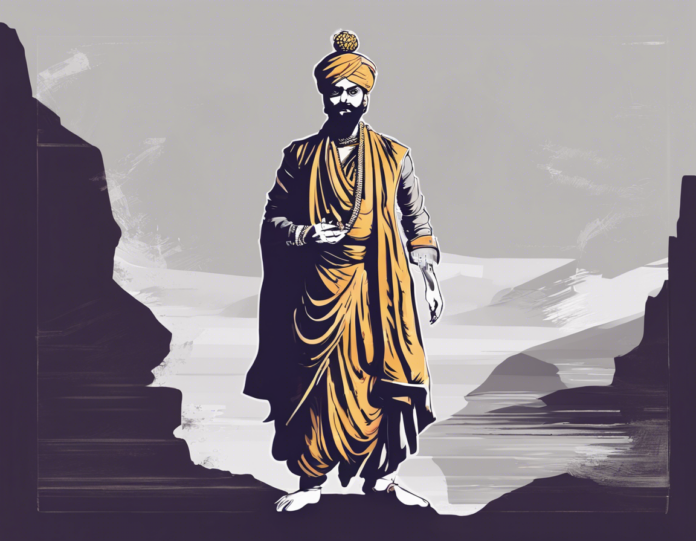The coronation of Shivaji Maharaj as the Chhatrapati of the Maratha Empire is marked as a watershed event in the history of India. It was a moment that not only established Shivaji as a powerful and legitimate ruler but also symbolized a significant shift in the balance of power in the region. The grand coronation ceremony, held on June 6, 1674, at the Raigad Fort, was meticulously planned to assert Shivaji’s authority and sovereignty over the Maratha Kingdom.
Setting the Stage
Before delving into the details of the coronation ceremony itself, it is essential to understand the context in which it took place. Shivaji Maharaj, a brilliant military strategist and visionary leader, had spent years building a formidable empire through a series of military campaigns and diplomatic maneuvers. By the early 1670s, he had established himself as a dominant force in the Deccan region, challenging the might of the Mughal Empire and other regional powers.
The Path to Coronation
Despite his growing influence, Shivaji Maharaj faced resistance from the existing power structures that questioned his legitimacy as a ruler. In response, he embarked on a careful strategy to consolidate his position and assert his claim to the title of Chhatrapati, a designation historically associated with the paramount sovereign of the Maratha Kingdom.
The Coronation Ceremony
The coronation ceremony at Raigad Fort was a meticulously planned affair designed to showcase Shivaji Maharaj’s authority and grandeur. The event was attended by a distinguished gathering of nobles, generals, diplomats, and religious leaders, all of whom had been invited to witness the historic moment.
Rituals and Symbolism
The coronation rituals were steeped in Hindu tradition and symbolism, underscoring Shivaji’s connection to the divine and his role as a Kshatriya warrior. The sacred thread ceremony, the offering of prayers and hymns, and the anointing with sacred waters were all intended to imbue Shivaji Maharaj with the blessings of the gods and the legitimacy of his claim to the throne.
Declaration of Sovereignty
Central to the coronation ceremony was Shivaji Maharaj’s declaration of sovereignty and his assumption of the title of Chhatrapati, which means “paramount sovereign” in Marathi. By adopting this title, Shivaji sought to underscore his status as the highest authority in the Maratha Kingdom and to signal his independence from external powers.
Legacy and Impact
The coronation of Shivaji Maharaj as Chhatrapati had far-reaching consequences that reverberated across the Indian subcontinent. It not only solidified Shivaji’s position as a legitimate ruler but also inspired future generations of leaders to resist foreign domination and uphold the values of self-rule and independence.
Frequently Asked Questions (FAQs)
Q1: Why was Shivaji Maharaj’s coronation significant?
The coronation of Shivaji Maharaj was significant because it marked his formal ascension to the title of Chhatrapati, establishing him as the paramount sovereign of the Maratha Kingdom and signaling his independence from external powers.
Q2: What rituals were part of Shivaji Maharaj’s coronation ceremony?
The coronation rituals included the sacred thread ceremony, the offering of prayers and hymns, and the anointing with sacred waters, all of which were steeped in Hindu tradition and symbolism.
Q3: Where was Shivaji Maharaj’s coronation held?
Shivaji Maharaj’s coronation took place at the Raigad Fort, a strategically located stronghold that served as the capital of the Maratha Kingdom.
Q4: What title did Shivaji Maharaj assume during his coronation?
During his coronation, Shivaji Maharaj assumed the title of Chhatrapati, which means “paramount sovereign” in Marathi, symbolizing his highest authority in the Maratha Kingdom.
Q5: What was the legacy of Shivaji Maharaj’s coronation?
The coronation of Shivaji Maharaj inspired future generations to resist foreign domination and uphold the values of self-rule and independence, leaving a lasting impact on Indian history.
In conclusion, the coronation of Shivaji Maharaj stands as a testament to his vision, leadership, and commitment to self-rule. By asserting his sovereignty and legitimacy through the grand ceremony at Raigad Fort, Shivaji Maharaj not only secured his place in history but also set a precedent for generations to come.
